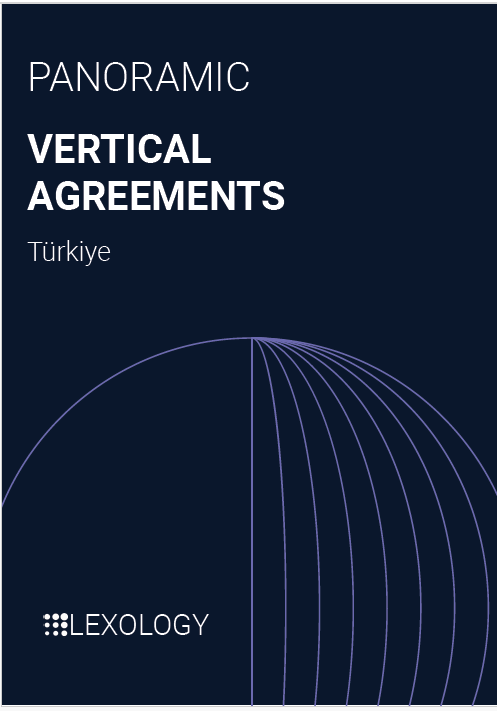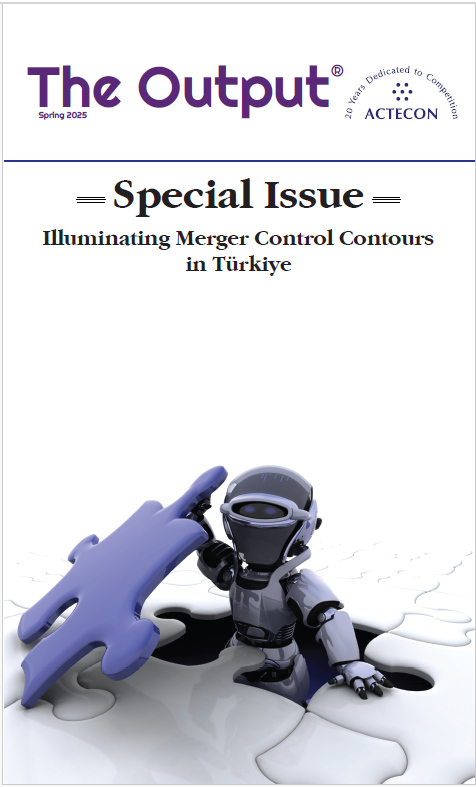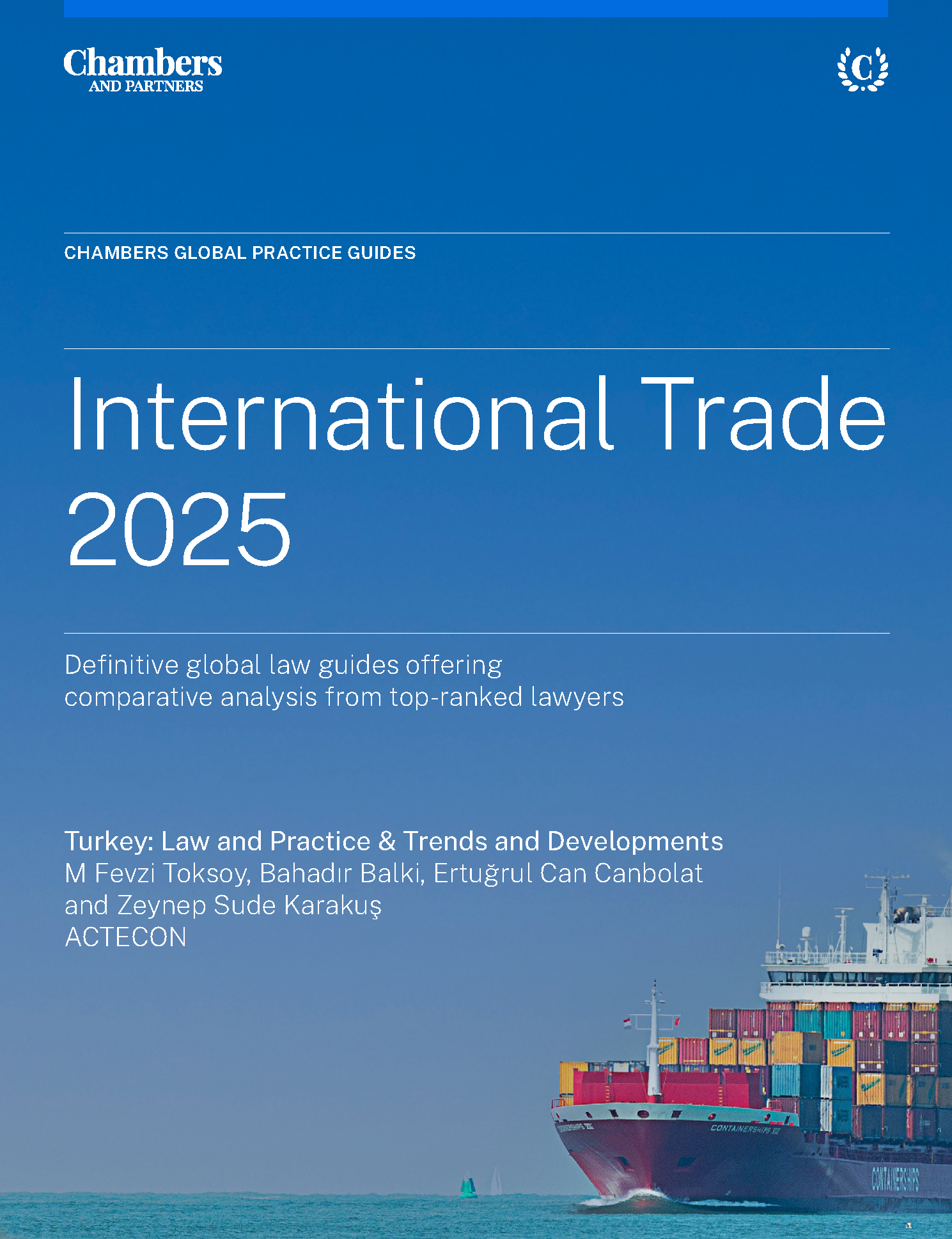The TCA Publishes Pioneer Decisions on the Simultaneous Implementation of the Leniency and Settlement Procedures
| Competition Law

The TCA Publishes Pioneer Decisions on the Simultaneous Implementation of the Leniency and Settlement Procedures
Article by Ertuğrul Can Canbolat, Muhammed Safa Uygur, Deniz Kıvanç and Zeynep Tuna Akbaş
Following the introduction of the settlement procedure, the number of undertakings applying for settlement has been increasing consistently. In this respect, the Turkish Competition Authority’s (“TCA”) evaluations regarding the implementation of the settlement procedure have become an object of curiosity as the investigations that ended with settlement decisions continue to be announced on the official website of the TCA. Two reasoned decisions published on 17 January 2023, were indeed significant in this context as the administrative fines were reduced to a record-breaking extent (a total of 60% for Kınık Maden Suları A.Ş. (“Kınık”) and %55 for Beypazarı İçecek Pazarlama Ambalaj Turizm Petrol İnşaat Sanayi ve Ticaret A.Ş. (“Beypazarı”)) within the simultaneous implementation of the settlement and leniency procedures.
On 24 February 2021, the TCA initiated a fully-fledged investigation against Kınık and Beypazarı (two competing manufacturers of natural mineral water and flavored mineral water) upon the claims that the investigated parties fixed prices through exchanging sensitive price information, price change dates, and increased prices. The investigation was concluded upon the settlement and leniency applications by both companies, with the finding that Kınık and Beypazarı had violated Article 4 of the Law on the Protection of Competition (“Competition Law”) by fixing prices through exchanging current and future price information, price change dates and jointly increasing prices. The TCA imposed fines on both undertakings and also applied significant reductions as a result of settlement and leniency applications.
Simultaneous Applications of Leniency and Settlement
Simultaneous application of leniency and settlement procedures are laid down in Article 10 of the Regulation on the Settlement Procedure Applicable in Investigations on Agreements, Concerted Practices and Decisions Restricting Competition and Abuses of Dominant Position (“Settlement Regulation”). In this context, an undertaking should apply for leniency before submitting the settlement text into the records of the TCA. Pursuant to Article 7(3) of the Settlement Regulation, if there is a leniency application together with a settlement application, the discount rates determined within the scope of the Regulation on Active Cooperation for Detecting Cartels (“Leniency Regulation”) and Settlement Regulation should be summed and then applied to the fine calculated as per the Regulation on Fines to Apply in Cases of Agreements, Concerted Practices and Decisions Limiting Competition, and Abuse of Dominant Position (“Fining Regulation”).
According to Leniency Regulation, if a leniency application is filed after the initiation of an investigation, the first applicant can obtain full immunity provided that; (i) there was no other application submitted by another party before the initiation of the preliminary investigation (ii) no other application should have been made by its managers/employees, and (iii) the TCA should not have any documents that can prove the violation of Article 4 of Competition Law. Undertakings may still obtain partial immunity if their application does not fulfil the above criteria, provided that they make an application until “investigation report” is officially served. Moreover, according to paragraph 26 of the Guidelines on the Explanation of the Regulation on Active Cooperation for Detecting Cartels (“Guidelines on Leniency”), “there is no obligation to submit evidence which would contribute significant added value to the evidence already in possession of the TCA”.
Returning to the case, the TCA assessed that the documents submitted by the first applicant, Kınık, were related to an information exchange between Beypazarı and itself. However, the TCA evaluated that these correspondences were merely an internal echo of the correspondences that were discovered during on-the-spot inspections. Similarly, the TCA decided that Beypazarı also could not be granted full immunity from the administrative fine since (i) Kınık made the first application and (ii) the already-existing documents in the case file would be sufficient for establishing a violation of Article 4 of the Competition Law. In this regard, the TCA granted a 35% reduction to Kınık and a 30% reduction to Beypazarı pursuant to Article 5 of the Leniency Regulation. In both cases, the TCA highlighted that even if the documents submitted by the applicants did not bring an added-value to already-existing documents, “the interpretation to the advantage of applicants/active co-operators" principle would apply as laid down in the Guidelines on Leniency. The TCA’s emphasis can be considered as an encouragement for undertakings who consider applying for leniency procedure even if they do not possess value-added evidence.
Within the scope of the investigation, both of the undertakings have also applied to the settlement procedure under the Settlement Regulation. The TCA decided that the requirements of the settlement have been fulfilled by Kınık and Beypazarı and applied a 25% reduction for both of the undertakings. According to the Settlement Regulation, a reduction of ten percent to twenty-five percent may be applied to the administrative fines as a result of the settlement procedure. The TCA has been frequently using settlement procedures since its incorporation into Competition Law on 16 June 2020. It can also be observed from the decisions that the TCA has adopted a very welcoming approach to settlement applications by applying mostly the upper limit reduction rate. In this respect, Beypazarı and Kınık cases illustrate that the TCA maintains its warm approach for settlement procedures.
Determination of the Resulting Fines
According to the Fining Regulation, the TCA determines the base monetary fine in the first place and then applies the aggravating and mitigating factors to the base fine to calculate the resulting fine. When determining the base monetary fine, Fining Regulation distinguishes between (i) cartels and (ii) other violations. The duration of the violation is also taken into account when calculating the base fine. The TCA then applies the aggravating or mitigating circumstances to the case in accordance with Articles 6 and 7 of the Fining Regulation. The resulting fine is reached after applying the leniency and settlement discounts to this rate.
In the present case, the TCA decided that the practices of Kınık and Beypazarı regarding price fixing and exchanging current and future price information should be categorized as a cartel. Therefore, it concluded that the starting point for the calculation of the base fine should be between 2% - 4% of the gross revenue in the relevant fiscal year. Additionally, it was highlighted that the violation lasted between 5 January 2018 and 27 April 2020 (more than one year and less than five years). In this regard, the base monetary fine was increased by half for both of the undertakings pursuant to subparagraph (a) of Article 5(3) of the Penalty Regulation.
After the determination of the base monetary fine, it was assessed that there were no aggravating circumstances for both undertakings. In terms of mitigating circumstances, the TCA applied a 25% reduction over the base monetary fine for Kınık since (i) the market share of Kınık was low, (ii) the revenue generated from the relevant activities had a very low share in Kınık’s annual gross income, and (iii) the turnover generated through another irrelevant activity of the undertaking was also included in the total turnover. Similarly, the TCA also applied a 25% reduction on the base monetary fine for Beypazarı since the relevant economic activity constituted a very small proportion of the undertaking’s annual gross income.
Consequently, the TCA imposed a 928,931.50 Turkish Liras monetary fine for Kınık and a 9,848,395.10 Turkish Liras monetary fine for Beypazarı.
Conclusion
Though there are numerous cases where the TCA terminated an investigation by way of settlement or implemented leniency, Beypazarı/Kınık case was a pioneering example of the implementation of the settlement and leniency procedures together. In this regard, the case constitutes a noteworthy example to demonstrate that the TCA has a warm approach towards such applications as it favours the applicants when interpreting leniency provisions even if the documents submitted by the applicants do not bring an added-value to already-existing documents in the case-file and also applies upper-limit reductions for the applicants in the context of settlement applications.
Published by Concurrences on February 2, 2023







